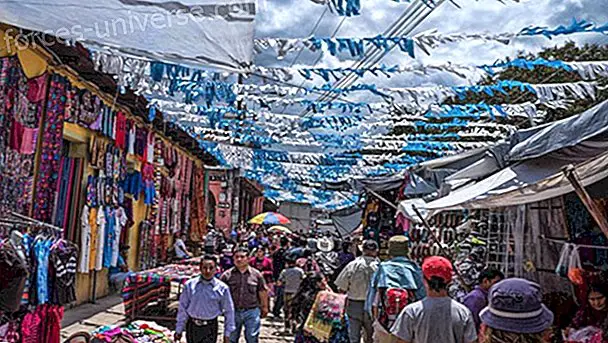If you involve the child and see that it is part of something important, he comes to school
- 2015
He is the only Spaniard who has opted for the Nobel Prize for Teaching. Yesterday he gave a lesson in Logro o, invited by the regional government, and the Caja Rioja classroom was small.
C sar Bona Primary Teacher
He arrived in a hurry, after teaching his evening classes at the Puerta de Sancho school in Zaragoza, where he instructs children in Primary 5. By then, a crowd gathered at the gates of the Caja Rioja-Bankia Foundation Center and headed down the Gran V a arcades. When has a teacher raised such an expectation?
The answer is in César Bona (Ainzón, Zaragoza, 1972), the only Spanish teacher who has chosen the Nobel Prize for teachers, the Global Teacher Prize. His fifteen years of teaching have taken him through different Aragonese centers and locations to 'educate the pack', as he says, although this has not always been the most comfortable to handle. He has always, however, managed to get the best out of the students-

Have any political parties asked you for advice on how to improve education in our country?
When the nomination for the Teacher Prize came out, there were a couple of people who wanted to contact me, but we didn't get to meet.
What are the keys to being the 'best teacher' in Spain?
I am not the best teacher, there are many who do very cool things and thanks to this nomination they are coming to light. The keys? I talk about things that we often forget; I speak of respect, of taking into account the human factor, sensitivity, empathy, of listening to children. Sometimes we are with them for a year and it is not until the sixth month, when we go on an excursion with them, when you meet a child. Normally they are not given the option at school to express how they are and what they feel. I also usually say that children are beings made of creativity, curiosity, imagination, and that is what we have to encourage in school.
And you do, among other things, giving them roles with certain responsibilities (such as historian, judge, lawyer ...).
Yes, it is obvious. If an adult at work feels involved and important in something, he will work at ease. And the same thing happens to children, if you involve them and they see that they can be part of something important, they come to school happy. But also involving them in the face of society, not only in the bubble that is the school.
In fact you take them out of the classroom and make them interact and interact with the people, the neighborhood ..., as in the short film they shot with grandparents from Bureta (Zaragoza).
Yes, and that is the meaning of the school, we have to educate for society.
And if it is so obvious that the student must be involved in their learning, why is it not done?
I think that the programs constrict a lot and, if you don't want to skip them, there are many things you miss in the context where the children live. And to teach them, you first have to know them.
One of the great rewards for his students has been to meet the primatologist Jane Goodall.
That was a very nice experience with students who had created a virtual animal shelter run by them, 'The fourth snout', and two of the awards the project deserved were given to us by Jane. She told me in Burgos that wherever she goes, and travels 300 days a year, she always sets my children as an example of hope for a better future. And in that I know that there are not only the children that I carry but many more, and in them there is hope, in children who are able to step forward to change things in any way.
In his almost fifteen years of teaching he has worked in centers of all kinds, in different locations (such as Zaragoza or the Aragonese towns of Bureta and Muel) and for children between 6 and 18 years old. Is it more complicated with some than with others?
I have enjoyed everyone. I usually say that every child is a universe and the more difficult, the greater the challenge must be. And teenagers have a lot to offer and they really want to participate even if it doesn't seem like it.
In your classes, who learns more, you or your students?
I have learned a lot in each place and with the children I have been with. I am open to learn from them and every day they surprise you with new things.
In fact, he has learned about cinema, photography and even playing the drawer with Roma students.
Yes, it is a privilege for me to go to class, it is a source of infinite inspiration from which I am numbered.
Do you also suspend your students?
Suspending, but I would not devote much time to the evaluation but to talk with the children about the reasons and ask how to improve it.
And when César Bona gets serious in class, how does he get?
I frown and already know that something needs to be changed.
Who has more or less supported their working method, parents of students, classmates or the education system?
It is not easy and there are parents who have a little fear because I hardly use the textbook, which for many is the guide of life. We have to use it as another tool, the same as technology. The system does not make it easy for us in general, everything is very corseted, and colleagues have been with everyone, as in all professions, but I am left with those who inspire you, which are many.
I don't win the Global Teacher Prize, but the nomination is already a prize.
One of the gifts that this award has given me has been to meet many people and many projects. I have learned more in these last five months than in my entire career because I have been asked many questions that I had to ask myself.
Source: http://www.larioja.com/
If you involve the child and see that it is part of something important, he comes to school






